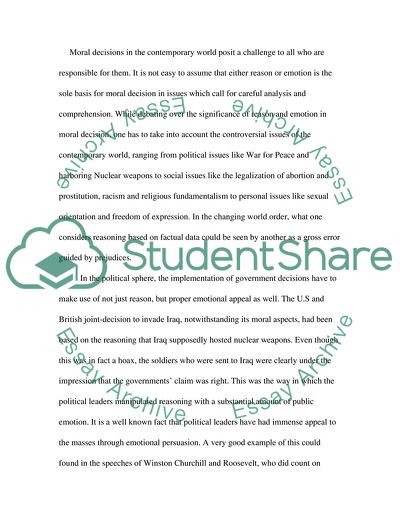Cite this document
(Are Reason and Emotion Equally Necessary in Justifying a Moral Decision Essay Example | Topics and Well Written Essays - 1250 words - 4, n.d.)
Are Reason and Emotion Equally Necessary in Justifying a Moral Decision Essay Example | Topics and Well Written Essays - 1250 words - 4. https://studentshare.org/ethics/1712064-are-reason-and-emotion-equally-necessary-in-justifying-moral-decisions
Are Reason and Emotion Equally Necessary in Justifying a Moral Decision Essay Example | Topics and Well Written Essays - 1250 words - 4. https://studentshare.org/ethics/1712064-are-reason-and-emotion-equally-necessary-in-justifying-moral-decisions
(Are Reason and Emotion Equally Necessary in Justifying a Moral Decision Essay Example | Topics and Well Written Essays - 1250 Words - 4)
Are Reason and Emotion Equally Necessary in Justifying a Moral Decision Essay Example | Topics and Well Written Essays - 1250 Words - 4. https://studentshare.org/ethics/1712064-are-reason-and-emotion-equally-necessary-in-justifying-moral-decisions.
Are Reason and Emotion Equally Necessary in Justifying a Moral Decision Essay Example | Topics and Well Written Essays - 1250 Words - 4. https://studentshare.org/ethics/1712064-are-reason-and-emotion-equally-necessary-in-justifying-moral-decisions.
“Are Reason and Emotion Equally Necessary in Justifying a Moral Decision Essay Example | Topics and Well Written Essays - 1250 Words - 4”. https://studentshare.org/ethics/1712064-are-reason-and-emotion-equally-necessary-in-justifying-moral-decisions.


